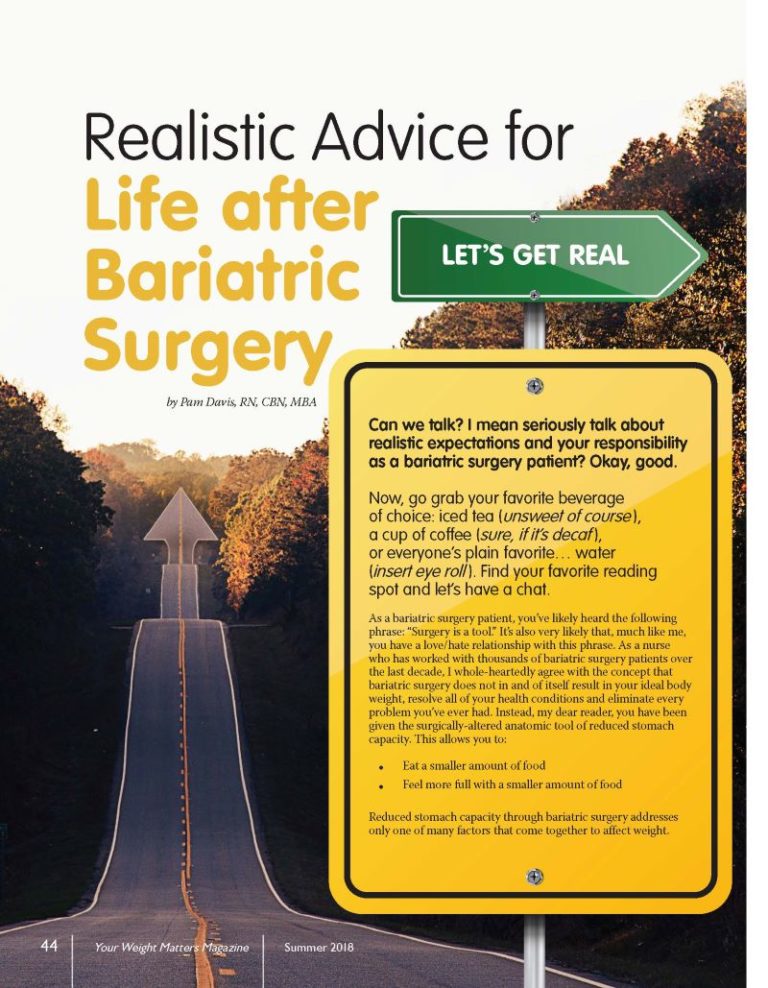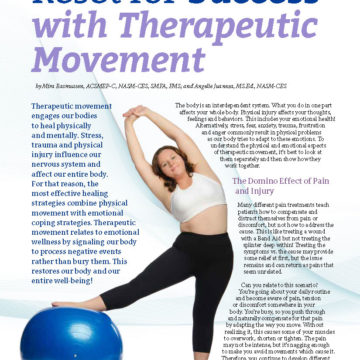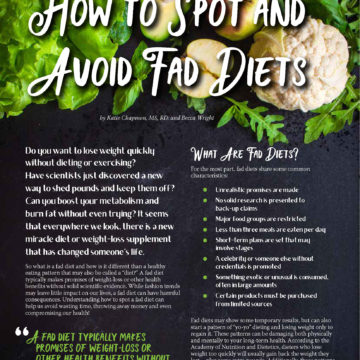Realistic Advice for Life after Bariatric Surgery


by Pam Davis, RN, CBN, MBA
Summer 2018
Can we talk? I mean seriously talk about realistic expectations and your responsibility as a bariatric surgery patient? Okay, good.
Now, go grab your favorite beverage of choice: iced tea (unsweet of course ), a cup of coffee (sure, if it’s decaf ), or everyone’s plain favorite… water (insert eye roll ). Find your favorite reading
spot and let’s have a chat.
As a bariatric surgery patient, you’ve likely heard the following phrase: “Surgery is a tool.” It’s also very likely that, much like me, you have a love/hate relationship with this phrase. As a nurse who has worked with thousands of bariatric surgery patients over the last decade, I whole-heartedly agree with the concept that bariatric surgery does not in and of itself result in your ideal body weight, resolve all of your health conditions and eliminate every problem you’ve ever had. Instead, my dear reader, you have been given the surgically-altered anatomic tool of reduced stomach capacity. This allows you to:
- Eat a smaller amount of food
- Feel more full with a smaller amount of food
Reduced stomach capacity through bariatric surgery addresses only one of many factors that come together to affect weight.
A Quick Look at the Facts
As a gastric bypass patient who is 17 years post-surgery, this is what I know from experience:
- The “tool” still works when I work it. It’s not as new and shiny as it once was. The manual is a little worn and frayed. It needs to be given proper care to stay in top form.
- No one – not my surgeon, dietitian nor my primary care provider – is with me 24 hours a day, seven days a week, 365 days a year.
- I alone am responsible for the choices I make every day. This extends far beyond my simple food choices.
- Health is a relative term. It ebbs and flows along a continuum (we’ll chat more about this concept later on).
I want you to have some realistic expectations for your life after bariatric surgery. I’m not talking about the first few months or even at the one-year mark. I’m talking about two years, 10 years and even 20 years after you’ve had surgery.
Examining Common Expectations
Let’s begin with weight-loss expectations. I frequently hear patients share concerns about not having “lost enough.” The question I throw back to you is, “What is enough?”
While you were likely given a goal weight before surgery – a number on the scale – you have to realize that number is based on height and weight tables which are decades old. It’s a number that very few bariatric surgery patients will actually reach. So I ask again, “What is enough?”
If your goals are centered on improving or resolving health conditions such as diabetes and high blood pressure, you can focus on real, broader aspirations that don’t concentrate on a number on a scale. That number is a guide, but not the whole story of your weight and health. A better approach may be to set goals to become more mobile, play on the floor with your children or grandchildren or simply get through the day feeling better physically and mentally. Keep these goals front and center as a reminder of why you make the choices you do every single day.
Realistic Goals: Yours and Mine
These are some of my own personal (and I feel realistic) daily goals:
- To move just as much – or more – than I did the day before
- To drink more water than coffee
- To give support whenever I seek support
- To encourage others whenever I feel discouraged
Notice that not a single one of those goals included a number on the scale. Now, take a few moments and write-out your own goals. Your goals should be SMART. In other words, they need to be specific, measurable, achievable, relevant and timely. Mine meet all of these requirements. They are not fancy, but they’re realistic for me. Yours should be realistic for you.
Now that you’ve set some realistic goals, let’s get real about things you can do every day to make these goals become reality.
Take Your Vitamins. These are real, grown-up, bariatric vitamins. Yes, back in 2001 when I had surgery, I too was told to just take two Flintstones Complete chewables. Guess what? Times have changed. Studies have been done. Multiple societies (American Association of Clinical Endocrinologists, The Obesity Society, American Society for Metabolic and Bariatric Surgery1, 2) have made recommendations regarding the need for long-term vitamin and mineral supplementation after bariatric surgery. Please don’t mess around with this one.
Have Your Labs Drawn at Least Once a Year. These include bariatric labs which are reviewed by someone who knows what the results really mean. Ideally, this should be done by your bariatric surgeon or a bariatrician. At a minimum, the following labs should be checked annually: CMP, Hematocrit, Ferritin, B12, Folic Acid, PTH and Vitamin D 25-Hydroxy Intact.
Drink Tons of Fluids Every Day. Yes, tons – to the point where your urine is barely yellow. This not only prevents dehydration, but keeps you feeling full, flushes out toxins, prevents urinary and bladder infections and makes nearly everything in your body work better. No, they don’t have to be decaffeinated – unless your healthcare provider says so. And no, they don’t have to be non-carbonated – unless your healthcare provider says so.
Avoid Liquid Calories. I love Starbucks and I know many of you do, too. Can you have a venti white mocha every day and expect not to struggle with weight maintenance? Probably not. Can you have an occasional short or tall latte? Sure. The same scenario goes for other liquid calories such as milk, juice, etc.
Continue to Separate Eating from Drinking. Once you’re a year or more out from surgery, you can drink pretty much up to the time of eating. However, drinking with your meals at any point after surgery will flush food through your pouch quicker. This can affect calorie intake by allowing you to eat more and to not feel full for as long after a meal. Wait at least 30 minutes
(ideally an hour) after eating to resume drinking so your feeling of fullness stays with you for as long as possible.
Track Your Behavior. You can’t see where you’re going if you don’t know where you’ve been. Please keep some type of food journal. Use an app, a sticky note or even your phone camera. Even if you only do it a few days every month, it really does help! I promise.
Stop Beating Yourself Up. We only get one life. It’s time to start living it to the fullest every day. Whatever you did or didn’t do yesterday or this morning, it’s over, gone and finished. What matters is this moment right now. Make the best decision for you in this moment and then make another best decision for you in the next moment. Then keep repeating.
Stop Trying to Meet Someone Else’s Ideal. Wear your Spanx if it makes you feel better, or don’t. Put on makeup if it makes you feel more fierce, or don’t. Be selfish. Take 10-15 minutes for yourself every day. You deserve that and it’s not really being selfish.
Figure Your Mental and Emotional Stuff Out. Will all of the emotional reasons we eat ever be fully resolved? Probably not. Will continuing to stay involved with support groups (true support groups, where you actually find the help you’re seeking) and working with a therapist or counselor help you find alternatives to eating your emotions? Probably so.
Conclusion
Please take note: we’re nearly to the end of our chat and I’ve not given you a list of foods to avoid, a number of calories to eat or a specific meal plan to follow. There are a couple of reasons why. First, if you work on setting those realistic goals that are specific to you and focus on numbers one through nine on the previous page, the food situation tends to take care of itself. However, I still believe in (and more often than not, follow) the recommendation to eat protein first and for half of every meal, and to keep my carb count low.
This is my last suggestion: don’t forget who you are and where you started from. Be a source of support and strength for others. Enjoy your journey because the destination will always be just out of reach. That’s what keeps us moving forward.
About the Author:
Pam Davis, RN, CBN, MBA, is a Certified Bariatric Nurse and a bariatric surgery patient. Pam has 15 years of experience working with those affected by obesity. Pam has authored articles, patient education materials and practice guidelines for treating those affected by obesity. In 2007, she received the Award of Service Excellence from the Case Management Society of America. In 2015, she received the Integrated Health Circle of Excellence Award from the American Society for Metabolic and Bariatric Surgery (ASMBS).
Pam has also served in various leadership roles including Chairwoman of the Obesity Action Coalition, President of the Eating Disorders Coalition of Tennessee, ASMBS Executive Council and Chair of the Integrated Health Clinical Issues and Guidelines Committee.
References:
1. https://asmbs.org/resources/clinical-practice-guidelines-for-the-perioperative-nutritional-metabolic-and-nonsurgical-support-of-the-bariatric-surgery-patient
2. https://asmbs.org/wp/uploads/2008/09/ASMBS-Nutritional-Guidelines-2016-Update.pdf
by Robyn Pashby, PhD Winter 2024 “No one is ever going to date you if you don’t…
Read Articleby Kendall Griffey, OAC Communications Coordinator Winter 2024 The Obesity Action Coalition’s 12th annual Your Weight Matters…
Read Articleby Nina Crowley, PhD, RD (with Inspiration from Shawn Cochran) Winter 2024 Dating, no matter your age,…
Read Article








